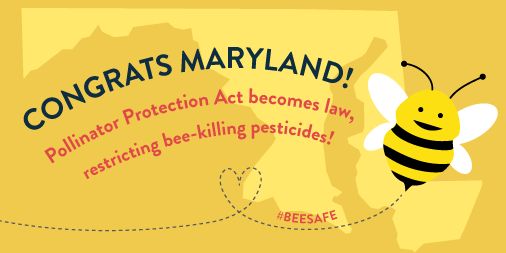
How Hatcher is Watching Out for Wildlife
In a special blog series, we’re highlighting The Hatcher Group’s work to inspire social change for good at the state and local level. In addition to our extensive national work, we’re proud to partner with nonprofit organizations advancing state policies – from Virginia and Arkansas to Texas and California.
Our Annapolis office is just steps from the Maryland State House where, from January through April, we work to lift up our clients’ voices in the Maryland General Assembly. States are called the “laboratories of democracy” for good reason. Many policies first enacted at the state (and local) level provide momentum for later federal action. They also provide hope when federal action seems impossible.
Below, see how we were on the front lines of several successful efforts to protect wildlife in Maryland. Stay tuned as we continue to share updates about our legislative work in the coming days and weeks.
Curtailing Pesticides
Building on last year’s action to ban consumer use of harmful pesticides, beekeepers and environmental and public health advocates had another reason to cheer in 2017 when Maryland prohibited harmful pesticides on designated state pollinator habitats. Our team provided the Smart on Pesticides Coalition with day-to-day strategic support and quickly organized online grassroots efforts when the bill seemed in danger.
Results: While the legislation passed the General Assembly, we’re running against the clock for Governor Hogan to sign it, so if you live in Maryland please ask him for his support.
Inhumane Cownose Rays Killings
Maryland passed landmark legislation to protect native Chesapeake cownose rays species from cruel and wasteful “killing contests.” Working with Save the Rays, we developed a comprehensive communications campaign that included branding and messaging, website development, media outreach and a compelling video that was shown to legislative committees. We also executed a social media plan with targeted posts and impactful graphics, which results in 19.7 million potential Twitter impressions.
Results: Governor Hogan signed into law a moratorium on this inhumane practice while the state completes a fisheries management plan. Insiders noted that passing such a significant bill in its first year was quite a feat.